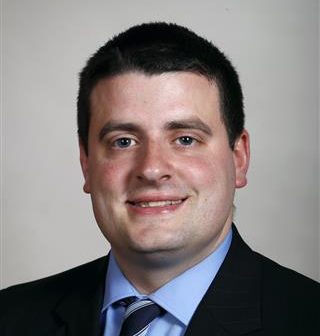From Rep. Patt Grassley’s newsletter:
This legislative session there has been a lot of discussion on sports betting and gambling because of the United States Supreme Court decision that the Professional and Amateur Sports Protection Act (PASPA) was unconstitutional. Opponents of sports betting have expressed the concern that legalizing sports betting is an expansion of gambling and increases the amount of people that suffer from gambling addiction that can ruin lives and families. Proponents of sports betting disagree with this position. They believe that sports betting is already occurring on the black market at a high rate so legalizing sports betting brings that activity into the light and allows it to be regulated and taxed.
The casino industry has continually expressed the need to keep the tax rate on sports betting low enough to make it viable within Iowa. The belief is that legal sports betting will be unable to compete with illegal sports betting if the tax rate is too high. A high tax rate allows illegal bookies and offshore apps to offer more favorable payouts because they do not have to deal with the tax rate. The current tax rate for gambling games in Iowa is 22% and 24% at racetracks. HF 748 and SF 617 both have established the tax rate for sports betting at 6.75%, which is the same rate that the state of Nevada uses. How to distribute the revenue from sports betting has been a unresolved conversation throughout the sports betting discussion.
The nineteen commercial casinos in Iowa had adjusted gross revenue of $1.467 billion in 2018. $321,868,206 went to city, county, and state taxes. $292,577,364 of these taxes go to the state, $7,322,710 goes to the city, $7,322,710 goes to the county, $2,929,086 goes to miscellaneous state taxes, and $11,716,336 goes to the County Endowment Fund. $152.8 million of the $292 million collected by the state goes to the Rebuild Iowa Infrastructure Fund to aid in building and repairing the infrastructure of state properties, $66,000,000 goes to the Iowa Skilled Workers & Job Creation Fund, $55,000,000 goes to the Revenue Bonds Debt Service Fund, $15 million, and $3.75 million to revenue bonds for the federal subsidy holdback fund. (1)
The nineteen commercial casinos are located within fifteen counties. Each casino shares its license with a Qualified Sponsoring Organization QSO) or the casino must be a non-profit. The QSOs receive, at a minimum, 3% of adjusted gross revenue. During the 2018 calendar year, the QSOs received just over $41 million. The money distributed from the QSOs mostly goes to the counties the casino resides in for charitable and civic needs.
In 2004, the legislature created the County Endowment Fund. The County Endowment Fund is funded by 8/10 of 1% of gambling taxes. This equaled approximately $11.7 million in 2018. This money was divided equally among the 84 non-casino counties and equaled approximately $135,000. The County Endowment Fund Program stipulates that the county wide community foundations that participate in the program distribute 75% of the annually allocated funds to charitable projects/programs within their counties. The remaining 25% is used to build the unrestricted endowment fund for that county to provide future grant support. Each county develops its grant distribution process and involves local citizens to review and allocate funding to charitable projects/programs that impact a broad range of a community’s well-being. (2)
There is currently a significant discrepancy between the money received by the counties with casinos and the casinos without casinos regarding gambling revenue. The vast majority of QSOs (casino counties) received between $1 million and $4.8 million, while the other 84 counties received $135,000. This raises the question of whether or not the non-casino counties are being treated fairly under the current system.
[1] https://irgc.iowa.gov/sites/default/files/documents/2019/04/annual_report_2018.pdf [2] http://lieblmg.com/resources/media/ICOF_2017-2018-Report.pdf












